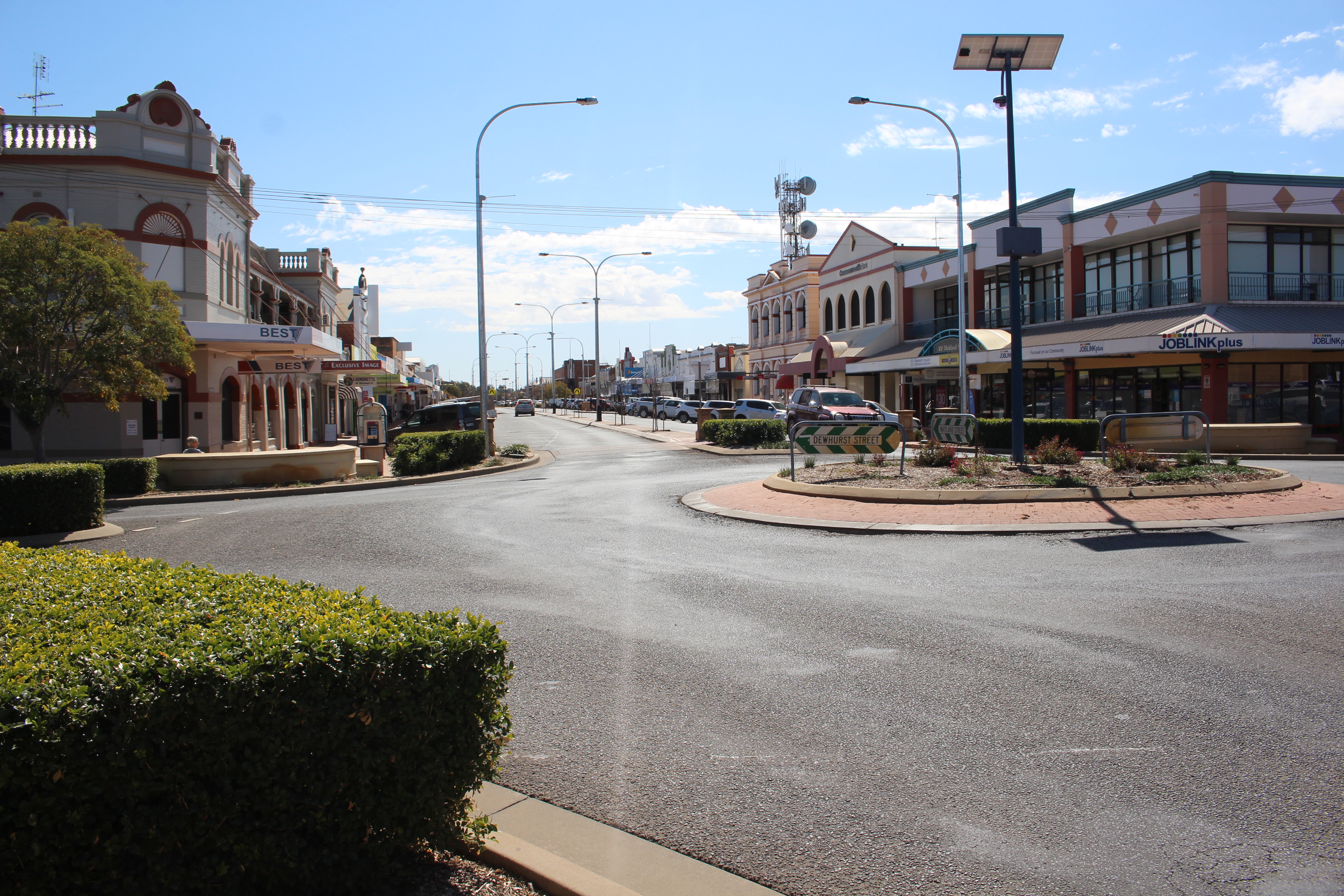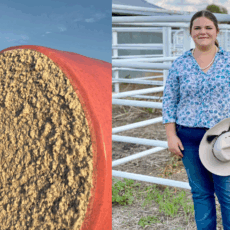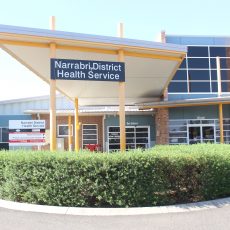There were high hopes the start of 2022 would signal the beginning of a COVID-free year after months of restrictions in 2020 and 2021, and an increase in vaccination rates with 95 per cent of eligible Narrabri Shire residents receiving a double dose by December 20, 2021.
However, COVID-19 cases in the region have risen rapidly during the festive season with 284 cases recorded from the Narrabri Shire (or for people listed with a Narrabri Shire address) as of 8pm, Tuesday, January 4.
A record increase of 91 new cases, in a 24-hour period, were recorded from the Narrabri Shire as of 8pm, Tuesday.
“Masks are currently mandatory in all non-residential indoor settings, and we strongly encourage everyone to wear a mask in any situation where they cannot socially distance,” said Hunter New England Local Health District in a media statement.
Health workers, businesses and residents have also felt the ripple effects with testing clinics overwhelmed, and lengthy wait times for results meaning the delay or cancellation of some Christmas holiday plans.
NSW Health said testing capacity in the state is currently under “enormous pressure” and the only people getting a PCR (nose and throat swab) should be those who have COVID-19 symptoms; live in a household with a confirmed COVID-19-positive case; or have otherwise been advised by NSW Health to get tested.
HNELHD reported a total of 2,961 new COVID-19 cases diagnosed as of 8pm, Tuesday, January 4. Of the 11,422 total active cases, 71 are receiving care in our hospitals and five are in ICU.
Sadly, a man in his 70s from the Lake Macquarie area died at John Hunter Hospital in the last week. He had received two doses of a COVID-19 vaccine.
“Our sincere condolences go out to his family and friends,” said HNELHD in a statement.
“We urge anyone who is yet to receive their vaccination to do so and if eligible book in for a booster.”
“From today (Tuesday, January 4), those 18 years and over are eligible for a booster if they had their second dose at least four months ago,” said HNELHD in a statement yesterday.
“We also strongly recommend that people aged 12 years and over who are severely immunocompromised have a third primary dose of vaccine from two months after their second dose.
“A booster dose is the best way people can protect themselves, their loved ones and the community from the ongoing transmission of COVID-19.”
From January 1, travellers seeking to enter Queensland from NSW have been able to use a negative rapid antigen test result to cross the border as opposed to a PCR test result.
While it’s hoped the self-administered rapid antigen tests will ease the strain on clinics, residents have reported difficulties sourcing RATs.
The rapid tests are in high demand following border-crossing requirements, the prevalence of the new Omicron variant, and as cases surge across NSW.
National Cabinet was due to meet on Wednesday, January 5, and at the time of The Courier newspaper going to print, it was expected rapid antigen tests would be the main topic of conversation following calls for RATS to be free and more accessible, especially for vulnerable people.
On December 31, the NSW Government adopted nationally consistent principles for the definition of a close contact and isolation periods for COVID positive cases, and removed mandatory PCR testing requirements for international arrivals.
Following a National Cabinet meeting on December 30, the NSW Government implemented the below arrangements for COVID cases and contact but people are also advised to stay up-to-date with the latest information on the NSW Health website.
Positive COVID-19 case:
- Seven days isolation commencing on the day of testing.
- Unless otherwise advised a person may leave isolation after seven days without formal notification or a further test. (If there are no symptoms)
- People in this category must take precautions (mask etc) and avoid high risk settings, such as hospitals and aged care for a further three days.
Close contacts. Defined as: A household contact, or where more than four hours of exposure has occurred in a residential setting; and contacts in a setting where Health has determined there to be a high level of transmission.
- Seven days isolation from the day of exposure, and obtain a PCR test as soon as possible.
- High risk settings, such as hospitals and aged care should be avoided for a further seven days.
- A rapid antigen test (RAT) is required at day six and, if positive, must be followed by a PCR test.
All other contacts: Monitor for symptoms and if symptoms develop, undertake a PCR test.
If you have symptoms: Obtain a PCR test if you have symptoms at any time.
These contact and isolation arrangements apply to all people, regardless of vaccination status.
The Narrabri District Health Service has released the below information on its social media page regarding testing:
COVID Testing Clinic this coming week at Narrabri District Health Service: Wednesday 5 – Thursday 13, January inclusive of the weekend.
“Testing will continue at NDHS and will be open from 7am – 4 pm each day.
“COVID testing clinics – no need to ring for an appointment, just present to the health service within the hours 7am – 4 pm.
“If you have the slightest of symptoms please come and be tested. If you have a fever, sore throat, cough, runny nose, shortness of breath or loss of taste, headache, get tested for COVID 19 immediately and stay home. When you arrive for your appointment please adhere to COVID safe rules by ensuring social distancing and wearing a mask. Follow the signage at the front of the health service – do not enter in through reception.”
On December 31, a statement from the NSW government said requirements for international travellers would be revised.
All fully vaccinated international travellers and flight crew arriving in NSW will be required to undertake a Rapid Antigen Test on days one and six after arrival.
Symptomatic arrivals will be required to get a PCR as soon as possible and isolate until negative result is received. If the PCR test is positive, the arrival must treat themselves as a positive case.
Under existing arrangements, all international travellers and flight crew are also required to produce a negative pre-departure test, within three days of boarding their flight. Unvaccinated arrivals will continue to be quarantined (capped at 210 per week) and require PCR testing.
Guidelines will be developed recommending international arrivals not attend at an aged care, health care, disability care or correctional facility for 7 days after arrival.
Premier Dominic Perrottet said this approach to dealing with COVID would provide certainty for people as we continue to chart a course out of the pandemic.
“Across the country we have done an incredible job in getting vaccinated to protect people and our health systems. High vaccination rates mean we can adapt our response to deal with the new challenges that come our way,” Mr Perrottet said.
“These changes will ensure our health system continues to work for people who need it most. We need everyone to keep playing their part and to only come forward to get tested if they have a medical need or are directed to do so.
“NSW has one of the highest vaccination rates in the world and it is vital we maintain that advantage and people book in for their booster shots as soon as they can to protect themselves, their families and the community.”
Health Minister Brad Hazzard said it was important our health system was reserved for people who needed it.
“Our frontline health workers have done an amazing job over the past two years and their efforts have helped keep countless people safe and we can’t thank them enough,” Mr Hazzard said.
“As we learn to live with COVID, people must make sure they only seek testing if they are feeling unwell, or are otherwise advised to get tested.”
Follow the NSW Health website for updated information.
To order photos from this page click here










